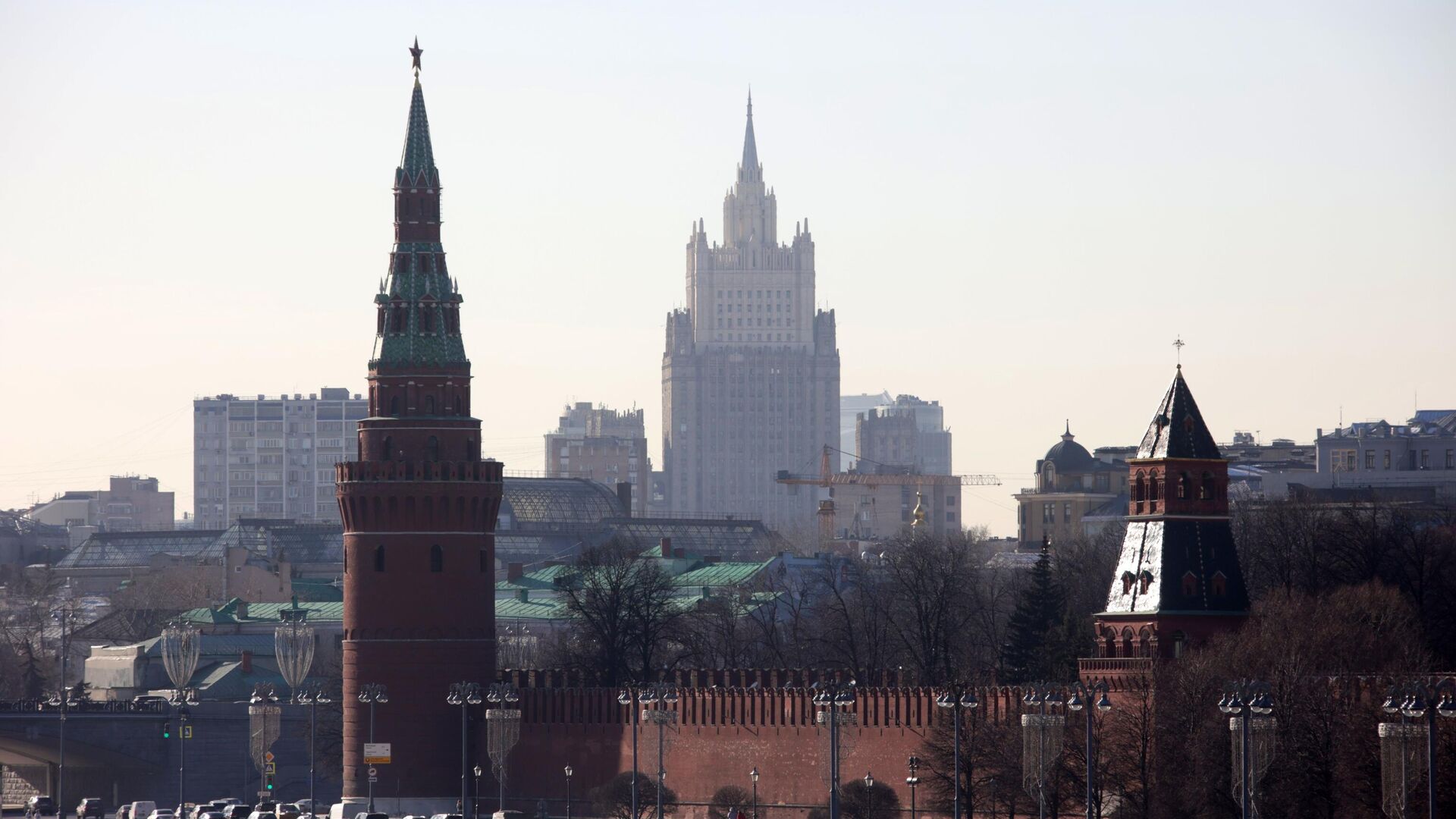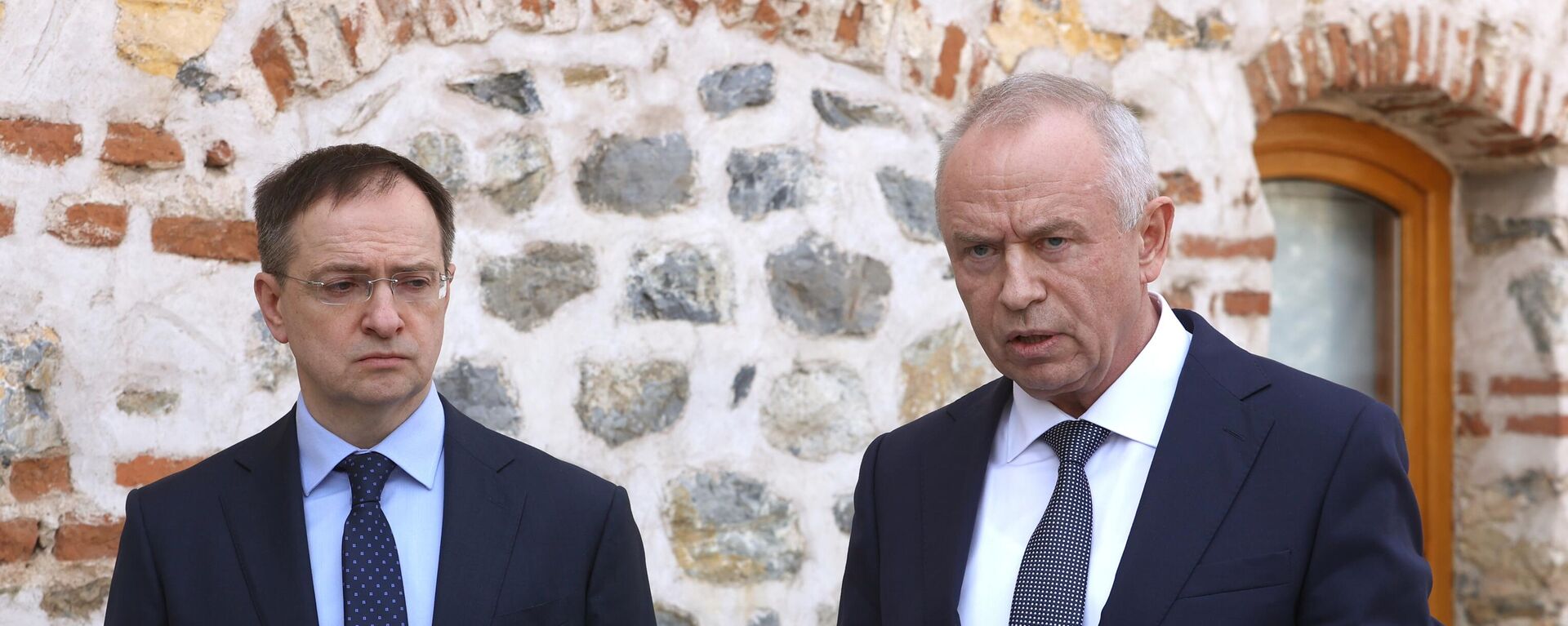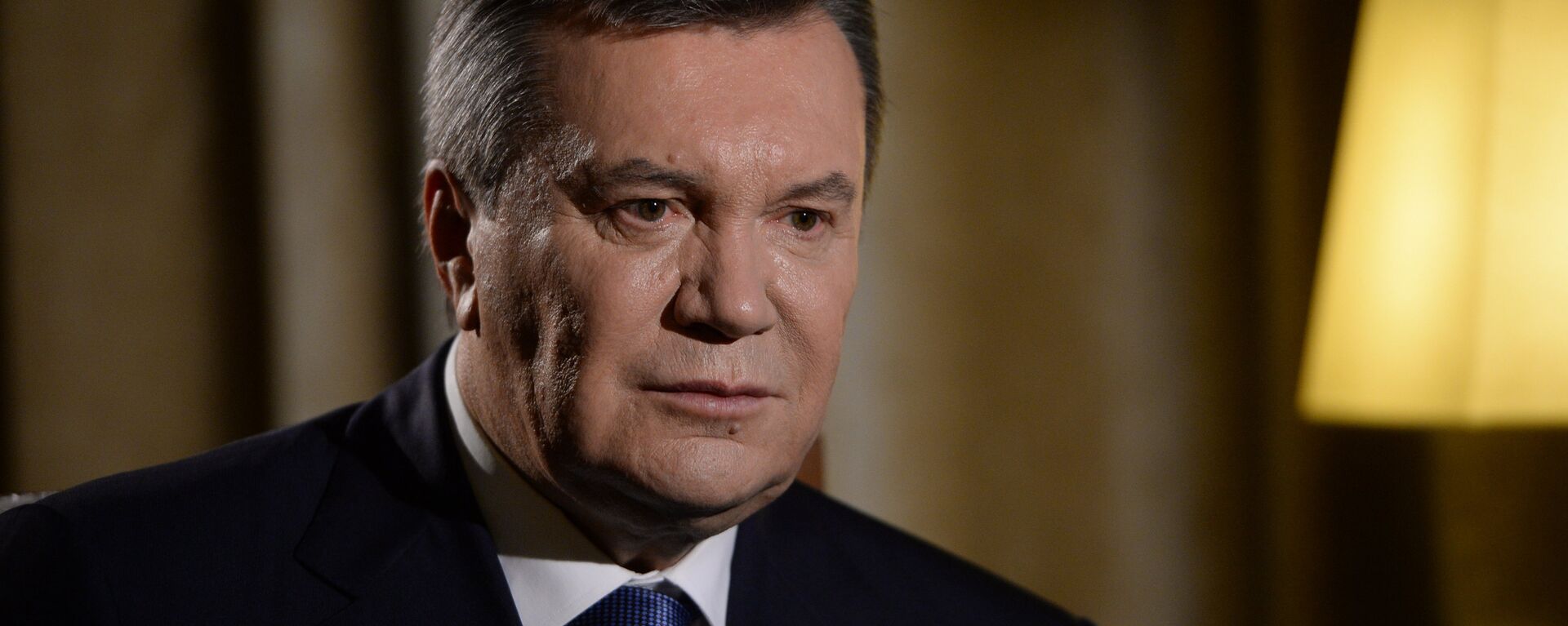https://sputnikglobe.com/20220330/crimea-not-up-for-negotiation-in-talks-with-ukraine-is-part-of-russia-kremlin-1094318982.html
'Crimea is Russia': Kremlin Refuses to Discuss Peninsula's Status With Ukraine
'Crimea is Russia': Kremlin Refuses to Discuss Peninsula's Status With Ukraine
Sputnik International
In an emergency referendum held in the aftermath of a coup d'etat in Kiev in the spring of 2014, the peninsula's residents voted overwhelmingly in favour of... 30.03.2022, Sputnik International
2022-03-30T10:02+0000
2022-03-30T10:02+0000
2024-06-23T18:33+0000
russia
ukraine
crimea
https://cdn1.img.sputnikglobe.com/img/07e6/03/07/1093644466_0:114:3072:1842_1920x0_80_0_0_271fe3e199700a4ae3e092e924de933e.jpg
Crimea is Russia and its status is not up for negotiation with Ukraine, Kremlin spokesman Dmitri Peskov has said. The spokesman declined to comment on the subject of countries which could serve as guarantors of Ukraine's security, advising reporters to instead contact his "colleague," presidential aide and Russian top negotiator Vladimir Medinsky. Medinsky is expected to provide additional information later in the day, according to Peskov.Peskov's comments follow Medinsky's remarks at a press conference in Istanbul, Turkey on Tuesday following negotiations with the Ukrainian delegation, during which he told reporters that the two sides had brought up a proposed commitment by Kiev to reject the idea of "returning" Crimea and the Donbass to its jurisdiction using force. Ukraine was said to have proposed holding 15 years of bilateral talks on Crimea and the port city of Sevastopol, and to have brought up the concept of a permanent neutral, non-bloc, non-WMD-possessor status secured by international guarantors.Russian deputy defence minister Alexander Fomin, who was present alongside Medinsky at the Istanbul talks, said that Russia would dramatically reduce its military operations in the regions of Kiev and Chernigov in a bid to "increase mutual trust" and create the preconditions for further negotiations.Medinsky was tapped by President Putin to head up the Russian negotiating team at talks in Ukraine which began in late February in Belarus.Russia began a military operation in Ukraine on 24 February after months of shelling, sniper and sabotage attacks by Ukrainian forces against the Donbass republics, whose status as sovereign nations Moscow recognized on 21 February. The military operation, being waged in conjunction with Russia's Donbass allies, followed months of escalating tensions between Russia and Kiev's Western patrons, and a refusal by the US and NATO to agree not to expand into Ukraine.The Ukrainian crisis began in February 2014, when US and EU-backed forces toppled the country's unpopular but democratically elected government in a coup and proceeded to try to incorporate the country into the Western economic and security blocs. The coup prompted the majority of residents in Crimea to vote in a referendum to break off from Ukraine and rejoin Russia, and sparked a bloody civil war in the eastern Ukrainian regions of Donetsk and Lugansk after local residents similarly attempted to break away from Kiev's control. Pro-Russian protest movements in the eastern and southern Ukrainian regions of Kharkov, Nikolayev and Odessa were brutally suppressed, with over three dozen activists burned alive after neo-Nazi gangs set fire to the trade unions building in Odessa in May 2014, and dozens more imprisoned, tortured, murdered and disappeared elsewhere by nationalists and security forces.
https://sputnikglobe.com/20220329/russia-receives-clearly-articulated-position-from-ukraine-at-istanbul-talks-chief-negotiator-says-1094291945.html
https://sputnikglobe.com/20220314/kiev-washington-responsible-for-failure-of-minsk-peace-agreements-ukraines-former-president-says-1093866063.html
ukraine
crimea
Sputnik International
feedback@sputniknews.com
+74956456601
MIA „Rossiya Segodnya“
2022
News
en_EN
Sputnik International
feedback@sputniknews.com
+74956456601
MIA „Rossiya Segodnya“
Sputnik International
feedback@sputniknews.com
+74956456601
MIA „Rossiya Segodnya“
ukraine, crimea
'Crimea is Russia': Kremlin Refuses to Discuss Peninsula's Status With Ukraine
10:02 GMT 30.03.2022 (Updated: 18:33 GMT 23.06.2024) In an emergency referendum held in the aftermath of a coup d'etat in Kiev in the spring of 2014, the peninsula's residents voted overwhelmingly in favour of returning to Russia's jurisdiction, just over sixty years after the region was transferred to the Ukrainian SSR in 1954 by Soviet leader Nikita Khrushchev.
Crimea is Russia and its status is not up for negotiation with Ukraine, Kremlin spokesman Dmitri Peskov has said.
"Crimea is a part of the Russian Federation, and according to the constitution, we cannot discuss with anyone the fate of Russian territories, the fate of Russian regions. This is out of the question, it is written into our constitution. Nor will we discuss or tell you about any nuances of the negotiations," Peskov told reporters Wednesday.
The spokesman declined to comment on the subject of countries which could serve as guarantors of Ukraine's security, advising reporters to instead contact his "colleague," presidential aide and Russian top negotiator Vladimir Medinsky. Medinsky is expected to provide additional information later in the day, according to Peskov.
Peskov's comments follow Medinsky's remarks at a press conference in Istanbul, Turkey on Tuesday following negotiations with the Ukrainian delegation, during which he told reporters that the two sides had brought up a proposed commitment by Kiev to reject the idea of "returning" Crimea and the Donbass to its jurisdiction using force.
Ukraine was said to have proposed holding 15 years of bilateral talks on Crimea and the port city of Sevastopol, and to have brought up the concept of a permanent neutral, non-bloc, non-WMD-possessor status secured by international guarantors.
Peskov said that the Ukrainian side's move to formulate concrete proposals and put them down on paper was a "positive thing," and that up until the Istanbul talks, this had not taken place. "This is a positive factor. As for the rest, we cannot say anything very promising, about any sort of breakthroughs, there is still very, very long-term work to be done," he said.
Russian deputy defence minister Alexander Fomin, who was present alongside Medinsky at the Istanbul talks, said that Russia would dramatically reduce its military operations in the regions of Kiev and Chernigov in a bid to "increase mutual trust" and create the preconditions for further negotiations.
Medinsky was tapped by President Putin to head up the Russian negotiating team at talks in Ukraine which began in late February in Belarus.
Russia began a military operation in Ukraine on 24 February after months of shelling, sniper and sabotage attacks by Ukrainian forces against the Donbass republics, whose status as sovereign nations Moscow recognized on 21 February. The military operation, being waged in conjunction with Russia's Donbass allies, followed months of escalating tensions between Russia and Kiev's Western patrons, and a refusal by the US and NATO to agree not to expand into Ukraine.
The Ukrainian crisis began in February 2014, when US and EU-backed forces toppled the country's unpopular but democratically elected government in a coup and proceeded to try to incorporate the country into the Western economic and security blocs. The coup prompted the majority of residents in Crimea to vote in a referendum to break off from Ukraine and rejoin Russia, and sparked a bloody civil war in the eastern Ukrainian regions of Donetsk and Lugansk after local residents similarly attempted to break away from Kiev's control. Pro-Russian protest movements in the eastern and southern Ukrainian regions of Kharkov, Nikolayev and Odessa were brutally suppressed, with over three dozen activists burned alive after neo-Nazi gangs set fire to the trade unions building in Odessa in May 2014, and dozens more
imprisoned, tortured, murdered and disappeared elsewhere by nationalists and security forces.




